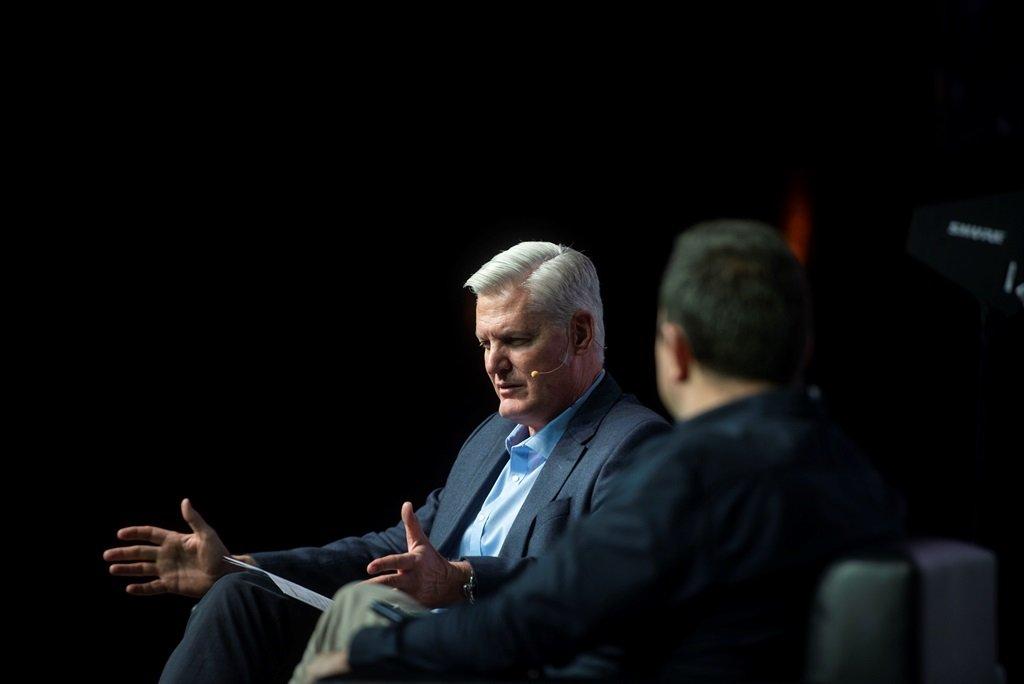Africa-Press – South-Africa. Eskom in the past did not take the “correct decisions” to install abatement technologies needed to improve air quality around its power stations, said the head of its Just Energy Transition Office, Mandy Rambharos.
Rambharos was speaking at News24’s inaugural On the Record leadership summit in Sandton on Thursday. The event includes panels where complex issues impacting South Africa’s future are discussed.
During a panel on climate change, Melissa Fourie, CEO of the Centre for Environmental Rights (CER), spoke of the public health emergency in Mpumalanga resulting from air pollution caused by industrial activity. A high court in March ruled that the air quality in the Highveld Priority Area, which includes Mpumalanga, violated the constitutional right to an environment that is not harmful to health and well-being.
Twelve of Eskom’s power stations are in the area and Sasol’s coal-to-liquids-refinery. There is also pollution from coal dust from mining and transportation, noted Fourie. She also lamented that air pollution is causing premature deaths and leading to health impacts such as cardiovascular and respiratory diseases.
For many years, the CER and others have been trying to get the government to force Eskom and Sasol to install pollution-abatement equipment to improve air quality. But the only way forward to save lives is to accelerate the phase-out of coal, Fourie shared.
“I acknowledge that Eskom in the past did not make correct decisions in terms of installing abatement technology for the air quality problem,” Rambharos said in response.
Apart from the air quality challenge, Eskom is facing multiple problems – debt north of R400 billion, a lack of generation capacity and climate change.
Installing abatement equipment – such as flue-gas desulfurisation technology at coal-fired power stations – would cost R300 billion for six plants. “We can’t afford that, and it does not add megawatts,” said Rambharos.
But the solution Eskom is putting on the table is the phase-out of coal, combined with a just energy transition plan.
Shutting down coal plants will have a positive impact on air quality, carbon emissions, and allow for water saving, Rambharos explained.
Rambharos said communities in Mpumalanga and the greater Highveld area also struggle with energy poverty and burn coal in their homes, which has health impacts. “If we can provide solutions for people to remove coal for those activities, we solve the energy poverty problem,” Rambharos said.
One of these solutions is containerised micro-grid solutions – which can provide power to rural homes in remote areas without grid access.
It will solve the energy problem, environmental and health issues, and air quality issues, Rambharos explained. For those who are “environmentally agnostic”, renewables also have an economic advantage as they are the quickest and cheapest power plants to get online, she added.
Eskom, CPUT join forces to reskill workers as coal-fired Komati heads for reboot
Echoing Eskom’s plans for a greener future, CEO André de Ruyter, during a separate discussion with News24 editor-in-chief Adriaan Basson shared that the transition to low carbon forms of energy is inevitable and cannot be resisted. Wind and solar PV plants and storage solutions are cost competitive, he stressed.
By 2035 Eskom plans to decommission 22GW of coal-fired power stations. Most of these plants will not be able to operate economically and environmentally beyond that point, said De Ruyter.
“We do not really have an alternative,” he said. “If we resist this transition, I think we will come second as a country and an economy.”
Eskom is also not abandoning communities and workers at its coal-fired power stations either.
Komati’s last unit is due for decommissioning this month. De Ruyter said Eskom is in discussions with the World Bank to access finance for a 100 MW plant at the station. Eskom is also working on setting up a training centre in Mpumalanga in conjunction with the Cape Peninsula University of Technology to help retrain workers to be able to seize job opportunities in the renewable energy sector.
For More News And Analysis About South-Africa Follow Africa-Press






